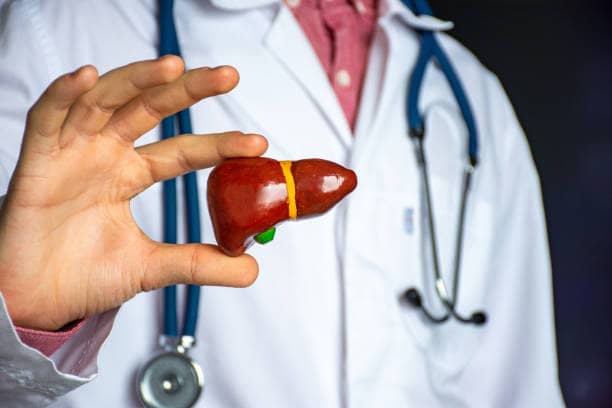What is GI Tract and its Treatment: The gastrointestinal (GI) tract is a complex system responsible for the digestion and absorption of nutrients, and it plays a crucial role in maintaining overall health. Problems in the GI tract can lead to a variety of uncomfortable and sometimes debilitating symptoms, affecting our daily lives. However, with the right knowledge and approach, many GI tract issues can be effectively treated and managed. In this comprehensive guide, we will delve into various aspects of GI tract health, common disorders, and how to treat and maintain a healthy gastrointestinal system.

Section 1: Understanding the Gastrointestinal Tract:
Before we delve into treatment options, it’s essential to understand the structure and functions of the GI tract.
1.1. Anatomy of the GI Tract:
The GI tract consists of several organs, including the mouth, esophagus, stomach, small intestine, large intestine (colon), rectum, and anus. Each of these organs has a specific role in the digestion and absorption of food.
1.2. Functions of the GI Tract:
The primary functions of the GI tract are:
- Ingestion: The process of taking in food.
- Digestion: Breaking down food into smaller, absorbable molecules.
- Absorption: The uptake of nutrients and water from digested food.
- Elimination: The removal of waste products from the body.
Section 2: Common GI Tract Disorders:
Now that we understand the basics, let’s explore some common GI tract disorders that can affect individuals of all ages.
2.1. Gastroesophageal Reflux Disease (GERD):
GERD is a chronic condition where stomach acid frequently flows back into the esophagus, causing symptoms like heartburn, regurgitation, and chest pain.
Treatment: Lifestyle changes, medications (antacids, proton pump inhibitors), and sometimes surgery.
2.2. Irritable Bowel Syndrome (IBS):
IBS is a functional GI disorder characterized by abdominal pain, bloating, and changes in bowel habits (diarrhea, constipation, or both).
Treatment: Dietary modifications (FODMAP diet), stress management, medication (antispasmodics, laxatives), and lifestyle changes.
2.3. Inflammatory Bowel Disease (IBD):
IBD includes conditions like Crohn’s disease and ulcerative colitis, which cause chronic inflammation of the digestive tract, leading to symptoms like diarrhea, abdominal pain, and weight loss.
Treatment: Medications (anti-inflammatory drugs, immunosuppressants), dietary adjustments, and in severe cases, surgery.
2.4. Celiac Disease:
Celiac disease is an autoimmune disorder triggered by the ingestion of gluten, leading to damage in the small intestine and malabsorption of nutrients.
Treatment: Strict gluten-free diet.
2.5. Gastroenteritis:
Gastroenteritis, often called the stomach flu, is an infection or inflammation of the stomach and intestines, causing symptoms like diarrhea, vomiting, and abdominal pain.
Treatment: Hydration, rest, and sometimes antibiotics (for bacterial infections).
Section 3: Treating GI Tract Disorders:
Effective treatment of GI tract disorders often involves a combination of medical interventions and lifestyle changes.
3.1. Diet and Nutrition:
A balanced diet is crucial for GI health. Some general dietary tips include:
- High-fiber foods: Fiber aids in digestion and helps prevent constipation.
- Probiotics: These promote the growth of beneficial gut bacteria.
- Keep Hydrate Yourself: Proper fluid intake maintains healthy bowel movements.
- Limiting trigger foods: Individuals with specific GI conditions should avoid foods that exacerbate their symptoms.
3.2. Medications:
Many GI tract disorders can be managed with medications prescribed by a healthcare professional. Some common types include:
- Antacids: For GERD and heartburn.
- Probiotics: To restore gut flora balance.
- Anti-diarrheal drugs: For conditions like IBS.
- Anti-inflammatories: For IBD.
3.3. Lifestyle Modifications:
Certain lifestyle changes can significantly impact GI tract health:
- Stress management: Stress can exacerbate GI symptoms, so relaxation techniques are essential.
- Regular exercise: Physical activity promotes healthy digestion.
- Smoking cessation: Smoking is linked to many GI disorders and should be avoided.
3.4. Surgical Interventions:
In some cases, surgery may be necessary to treat GI tract disorders. Procedures include:
- Fundoplication: To treat severe GERD.
- Colectomy: In cases of severe IBD.
- Hemorrhoidectomy: For chronic hemorrhoids.
Section 4: Preventing GI Tract Disorders:
Prevention is often the best medicine. Here are some general tips for maintaining a healthy GI tract:
4.1. Balanced Diet:
Consume a variety of fruits, vegetables, whole grains, lean proteins, and healthy fats. Avoid excessive consumption of processed foods, sugar, and alcohol.
4.2. Hydration:
Adequate water intake is essential for digestion and overall health. Aim for at least eight glasses of water per day.
4.3. Stress Management:
Practice stress-reduction techniques like meditation, deep breathing exercises, or yoga to minimize the impact of stress on your GI tract.
4.4. Physical Activity:
Regular physical activity aids in digestion and helps maintain a healthy weight, which is essential for GI health.
4.5. Avoid Smoking and Excessive Alcohol:
Both smoking and excessive alcohol consumption can damage the GI tract lining, leading to various disorders.
Section 5: Seeking Medical Help:
It’s crucial to seek medical advice if you experience persistent or severe GI symptoms. Early diagnosis and treatment can prevent complications and improve your quality of life.
5.1. Consult a Gastroenterologist:
If you have ongoing GI issues, consult a gastroenterologist, a specialist in the diagnosis and treatment of GI disorders.
5.2. Regular Screenings:
Certain GI conditions, like colorectal cancer, can be detected early through routine screenings. Follow recommended screening guidelines based on your age and risk factors.
Conclusion:
Maintaining a healthy gastrointestinal tract is essential for overall well-being. Understanding the functions of the GI tract, recognizing common disorders, and adopting a holistic approach to treatment and prevention can lead to a happier and healthier life. Remember that individual treatment plans may vary, so consult with a healthcare professional to develop a personalized strategy for your GI tract health. With the right care and attention, you can enjoy a life free from the discomfort of GI tract disorder.








2 thoughts on “What is GI Tract and its Treatment?”